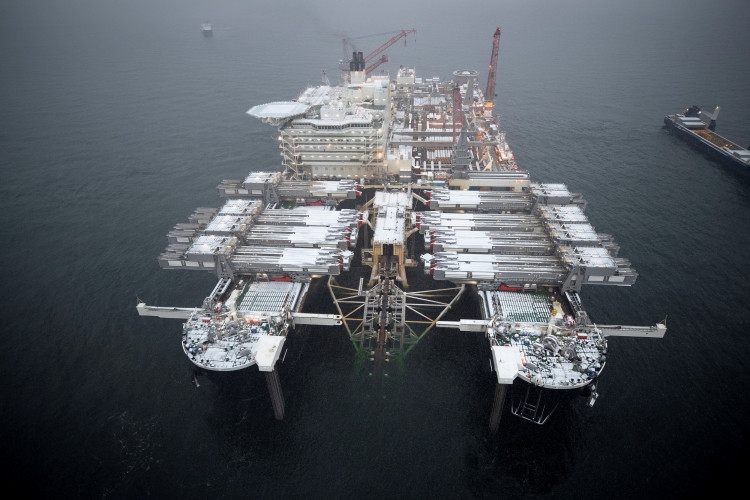The Nord Stream 2 pipeline that will bring Russian gas to Germany became one of the most controversial energy projects in Europe. The project was criticized by leaders around the world. The president of the European Council, Donald Tusk said that the project is a mistake while tUnited States President Donald Trump said that it is very inappropriate and it is a very bad thing for NATO.
The pipeline project is opposed by Ukraine since it will bypass the country. It also gained a unanimous no-vote from the United States, eastern European Union States, and the European Commission as they fear that it might undermine the bloc's energy union's plans. Germany and France, however, forged a compromise deal on pipeline rules this month to allow the scheme to proceed.
Dmitry Marchenko, an analyst at the credit rating agency Fitch, welcomed the agreement. He commented that it is a good compromise which may work for all the parties, referring to Russia, the EU, and Ukraine.
The project is composed of 434 miles of pipe out of a total of 746 which are laid across the Baltic Sea that will pass along an existing pipeline between Russia and Germany. It is expected to be operational after eight years. The project is a collaborative investment plan of Gazprom, a Russian state gas firm, and five western energy companies, namely, Uniper, Wintershall, Shell, OMV and Engie.
The projects started geopolitical arguments and the threat of sanctions. Brussels and the United States claim that the project will deepen Europe's reliance on Russia for gas imports. Russia, current, provides about 40 percent of Europe's consumption.
Germany and Russia stood firm in their plan to build the pipelines. German Chancellor Angela Merkel argued that the project will not increase Europe's reliance on Russian gas since they are also planning to increase the imports of gas from other countries including the United States.
The deal agreed in February requires the pipeline to meet four European Union rules that includes a telecoms-style unbundling requirement that will allow other suppliers access to the pipeline. Germany, however, will the regulations in the pipelines. The agreement still needs the approval of the governments and the European Union parliament before finalization. Tim Boersma, the director of global gas markets at the United States-based Center on Global Energy Policy, said that it is safe to say that the pipeline cleared a major hurdle after the compromise pact.





